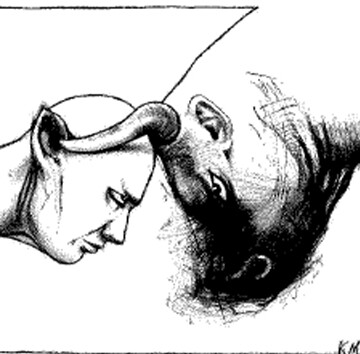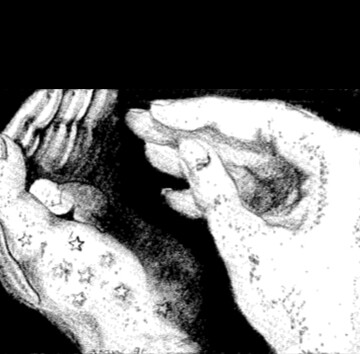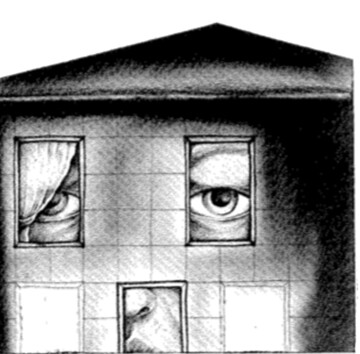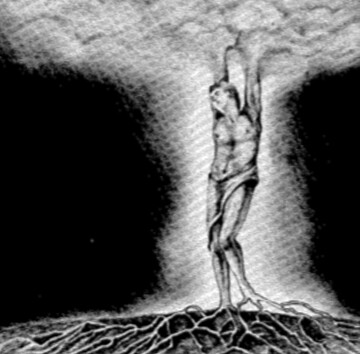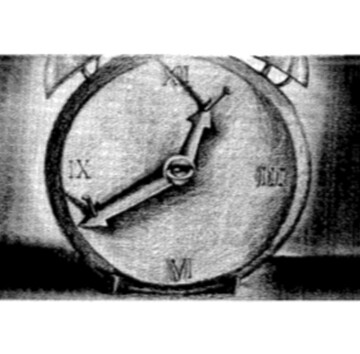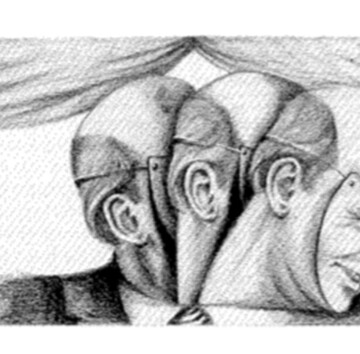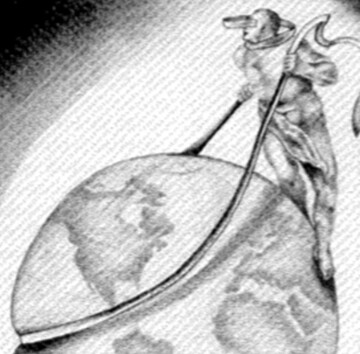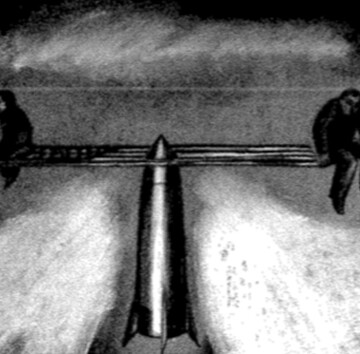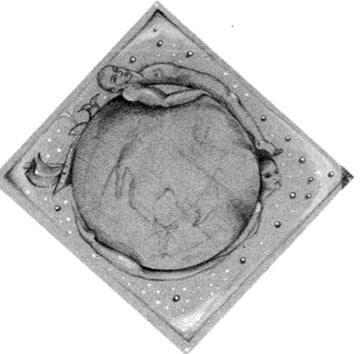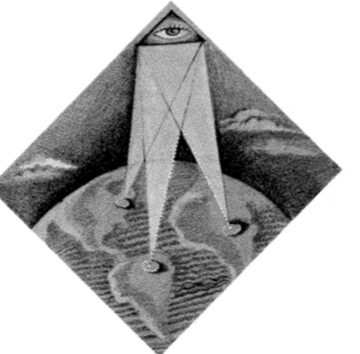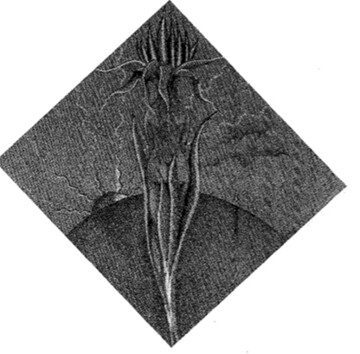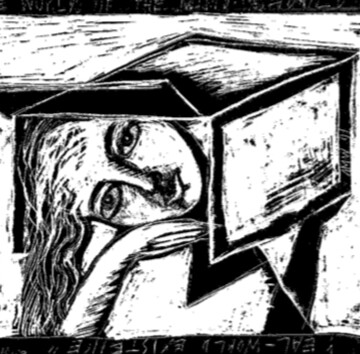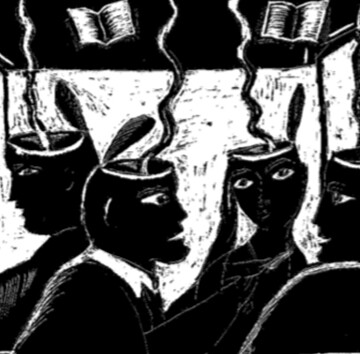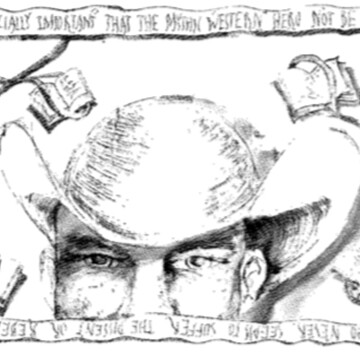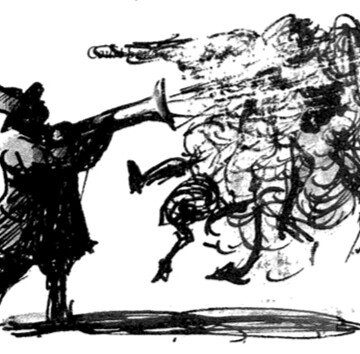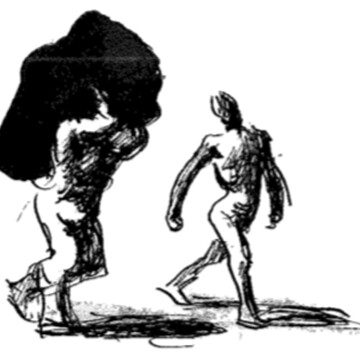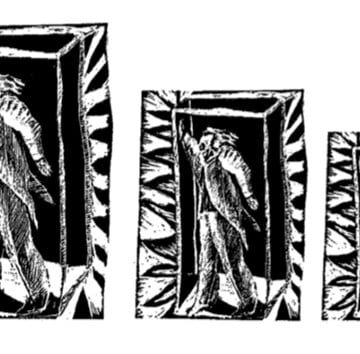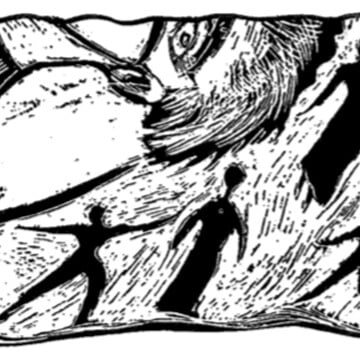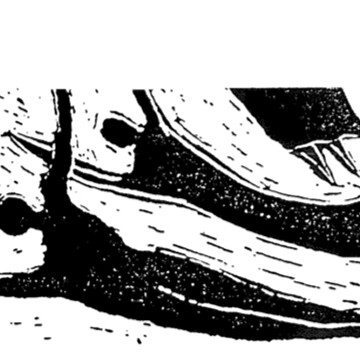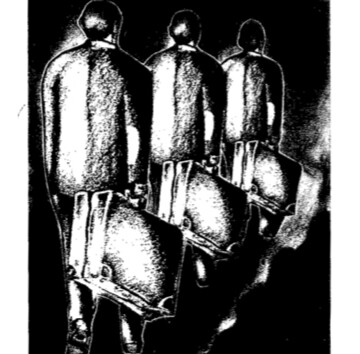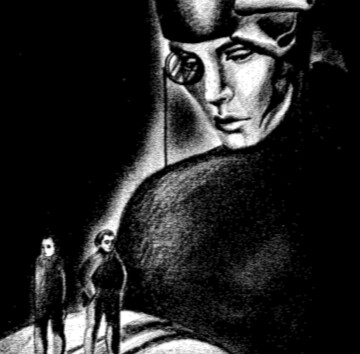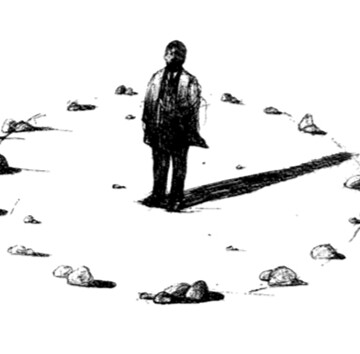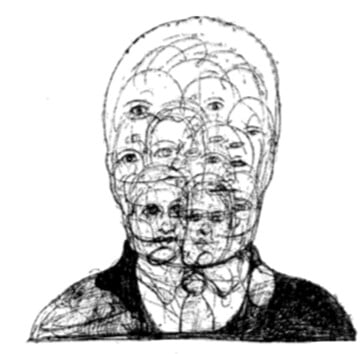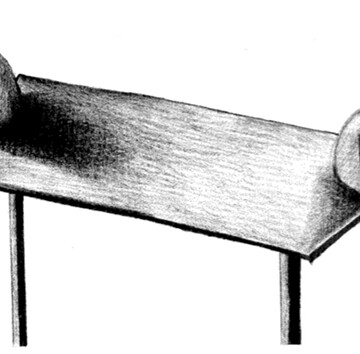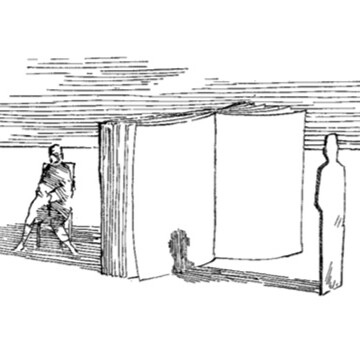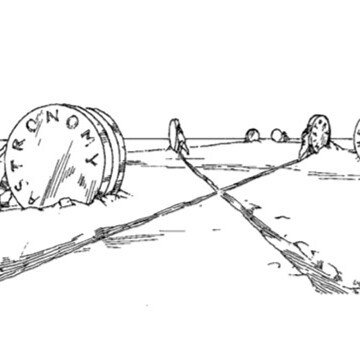In 1983 I noted in Just and Painful: A Case for the Corporal Punishment of Criminals that there were approximately 315,000 individuals incarcerated in federal and state prisons, plus some 158,000 persons in jails of various kinds. The annual cost of this incarceration was estimated then to be $20,000 per inmate, amounting to an annual...
Category: Web
Fighting Drugs, Taking Liberties
In the early 1980’s, the Reagan Justice Department announced a far-reaching “war” to free the United States from illicit drug use. There was skepticism at the time that government actions could cause such a fundamental change in entrenched public attitudes and behaviors, and there were different views about the means by which such a war...
Blood at Eastertide
Europeans from Cortes to Graham Greene, and Americans from Ambrose Bierce to the contemporary tourist who is offered sugar-candy skulls to buy on the Day of the Dead and has his car stopped by men in anonymous uniforms toting guns, have discovered Mexico to be a country characterized by a ferocious reality that very often...
From El Paso to Plymouth
Last November, a delegation of citizens from the far West Texas border city of El Paso made the long journey to Plymouth, Massachusetts. The purpose of the El Pasoans’ visit was to challenge Plymouth’s long-held—and nearly universally accepted—claim that it was the site of the first Thanksgiving to be held on what is now United...
The Incredible Shrinking Woman
Movies, according to conventional wisdom, reflect society. And so they do. Politically, movies often reflect the perspective of Hollywood artistes who think they possess a gift for reflecting society. Commercially, movies reflect not only audience taste but what some director or studio executive assumes is audience taste; they reflect not only what we’re willing to...
Who Is Sylvia? What Is She?
Unlike the situation of only a few decades ago, the position occupied today by women poets in American literary culture is so prominent, the range of their subjects and styles so wide, that it has become virtually impossible to make any generalizations about them or their work except to note that in diversity must lie...
The Doctor and the State
While cooling my preadolescent heels in the family doctor’s office forty-odd years ago, I was given to studying a Victorian Era print that hung on the waiting room wall. The Doctor was its title. A young woman, bare arm flung helplessly toward the viewer, lay stretched on chairs in, apparently, the family parlor. The tailcoated...
Social Security as Family Policy
Almost two years ago, Daniel Patrick Moynihan did the nation a great service by making Social Security safely controversial. Acknowledging the approaching problem of the huge baby boom retirement that will have to be supported by the smaller baby bust generation, Moynihan’s plan would have eliminated the trust fund created by the 1983 Social Security...
Confessions of a Housing Policy Junkie
I spent the 1970’s looking for a social policy agenda I could love. I thought I had found one in federal housing subsidies. The image of the free family on its homestead powerfully appealed to my imagination. I saw the suburban home as heir to the Jeffersonian agrarian spirit, its bond to property stimulating the...
The Decline and Splendor of Nationalism
No political phenomenon can be so creative and so destructive as nationalism. Nationalism can be a metaphor for the supreme truth but also an allegory for the nostalgia of death. No exotic country, no gold, no woman can trigger such an outpouring of passion as the sacred homeland, and contrary to all Freudians more people...
Regression and Renewal
In February 1941, the world was at war. Nazism and fascism ruled virtually all of Europe and parts of Africa. Imperial Japan was poised to conquer much of East Asia. Joseph Stalin still controlled the world’s largest land mass, although Hitler was soon to shake Stalin’s throne. That year, Pitirim A. Sorokin, born in 1889,...
Totalitarianism With a Capitalist Face
In an essay dated January 1, 1991, and published last July, on the day Mikhail Gorbachev met John Major in London, I forecast the former’s demise. “Sadly for his Western admirers,” I wrote, “even unprecedented dictatorial powers cannot guarantee political longevity in Gorbachev’s case. He is a dictator by the grace of the secret-police apparatus:...
Prophet Sustained
When National Review published a special obituary issue on James Burnham soon after his death in 1987, perhaps the most remarkable contribution came from the pen of John Kenneth Galbraith. The Harvard economist reminisced about the eager welcome with which he and fellow New Dealers in the Roosevelt administration had received Burnham’s The Managerial Revolution:...
Origins and Outcome
To the degree that it is remembered at all, the America First Committee (AFC) has gone down in history as an organization most suspect, at best composed of good people serving a bad cause, at worst riddled with conscious agents of a Nazi transmission belt. During its heyday in the years 1940-1941, some of the...
The Anti-War Warriors
Back in 1941 some members of the Senate and House took an unpopular route to serve their country, their beliefs, and their priorities in a cause that was hopeless. Many of them were not reelected. They were the men (no woman of the few then in Congress stands out) who fought against the United States’...
Redskins and Palefaces
The America First Committee emerged nationwide in the summer of 1940 from the initial efforts of Gerald Ford, Potter Stewart, and other Yale Law School students, seconded by law professor Edwin Borchard. It evolved amid the American political cataclysm following Franklin Roosevelt’s landslide election to a second term in November 1936. The mandate to institute...
What Might Have Been
The America First Committee was part of democracy in action during one of the most terrifying times in human history. It was the leading pressure group appealing for mass support in opposition to involvement in World War II before Pearl Harbor. When America First saw the light of day in September 1940, Poland, Denmark, Norway,...
Big Little House in American Literature
F. Scott Fitzgerald, Raymond Chandler wrote, “is a subject no one has a right to mess up. Nothing but the best will do for him”; and that is how I feel about Laura Ingalls Wilder, who deserves to be ranked with Fitzgerald and Hemingway, Twain and O’Connor and Dickinson as one of the geniuses of...
Inscribing the American Frontier
In August 1990, George Bush announced that America was “drawing a line in the sand” of the Saudi Arabian desert. With those words, the President recalled a list of individuals reaching back to Christopher Columbus who have defined “America” by the act, whether physical or verbal, of inscribing the American land. Definition is, by common...
Conspicuous Benevolence and the Population Bomb
The one certain thing about population control is that we do not yet know how to achieve it. That needs a bit of explaining. If human beings do absolutely nothing about controlling their populations, nature will do it for us, simply because the world—our world—is limited. Sure, a few human beings might eventually be shipped...
The New Wealth of Nations
I have just returned from a trip around the world; a trip where among other things I explored why certain nations succeed brilliantly and other nations stumble along in poverty with marginal economies. In previous travels to South America, I accepted the standard south-of-the-border excuse that its poverty and problems were caused by “Yankee Imperialism.”...
A Nation of Davids
” . . . Ahaz . . . did not that which was right in the sight of the Lord . . . he . . . made his son to pass through the fire . . . he sacrificed and burnt incense in the high places, and on the hills, and under every green...
The Terror of the Obvious
There is a painting on my wall that fascinates me. That is partly because it is beautiful, partly because of the story it tells. It is a large Dutch oil of 1658 by Hendrik van Vliet, better known for his church interiors, and it shows two men solemnly seated at a dark table lit only...
The Private Worlds of the Mind
On the morning of July 13, 1985, as I noted in my journal, I woke with an exceptionally clear recollection of a dream. In it my wife, Elizabeth, and I were in a high-ceilinged Victorian room with brown walls fashioned of rotating metallic discs. From there, we moved outside onto New York City’s Park Avenue,...
Can Humanity Forget What It Knows?
Civilization hangs suspended, from generation to generation, by the gossamer strand of memory. If only one cohort of mothers and fathers fails to convey to its children what it has learned from its parents, then the great chain of learning and wisdom snaps. If the guardians of human knowledge stumble only one time, in their...
Writing Offbeat Westerns
The Western novel has always been hedged about with more conventions than any other category, with the possible exception of women’s romances. I’ve often puzzled about why that is so, and even after years of thinking about it, I don’t have any good answers. I know that some of it has to do with the...
The Impact of Immigration on Hispanic-Americans
As American migrant workers took to the fields in the first harvest season after the passage of the Immigration Reform and Control Act of 1986 (the sweeping new federal law to control illegal immigration), Herminio Muñoz, a sixty-five-year-old Mexican-American from Progreso, Texas, told the Dallas Times Herald: “We think there is going to be a...
Dolorado
All in all, why did I come to this nightmarish New York? To fill my pockets with dollars, and then to go back and live as a money-changer? No. You know that the answer is no. Out of curiosity? Yes. . . . Somehow yes. But most of all out of anxiety. Does this legendary...
Gorbachev and the Market
No doubt Gorbachev has been entirely misunderstood in the West, and continues to be. The primary myth is that glasnost and perestroika represented fundamental change from the Soviet past. They did not establish Western-style economic or political freedom, as the media led Americans to believe. Instead, each was designed to “improve and perfect” the workings...
Jack and Jill, or Why I Am Not a Conservative
He who has seen the present has seen everything, said Marcus Aurelius, and this is why the floor of my study is made concave by the aggregate weight of all the newspapers and magazines I have acquired since moving to Cambridge: I simply cannot bring myself to throw away a single page of newsprint. In...
Willing Belief
William James was much concerned about “faith-tendencies,” which he defined as “extremely active psychological forces, constantly outstripping evidence.” The Gorbachev era fully confirms his apprehensions. The eminent psychologist even constructed a seven-rung “faith-ladder”: 1. There is nothing absurd in a certain view of the world being true, nothing self-contradictory; 2. It might have been...
The Goading of America
Fisher Ames is the Founding Father who draws a blank. Few people today have heard of him, yet he wrote the final version of the First Amendment, and his speech on Jay’s Treaty, delivered when he was the leader of the Federalists in the First Congress, was called the finest example of American oratory by...
Beautiful Losers
When T.S. Eliot said that there are no lost causes because there are no won causes, he probably was not thinking of American conservatism. Nearly sixty years after the New Deal, the American right is no closer to challenging its fundamental premises and machinery than when Old Rubberlegs first started priming the pump and scheming...
Nick at Nite, TV, and You
Every night, in prime time, a changeling can enter your living room, an inhuman creature secretly usurping a human’s place. It’s an unnatural presence, an electronic phantom with vast and secret motivations; but its presence is so enjoyable and comforting, as well as so familiar (it hastens to assure you), that you really don’t mind...
The ‘Bottom Line’ as American Myth and Metaphor
The question, “What is the bottom line?” has entered the lexicon of business as a near metaphysical given. It is so frequently applied to events calling for tough decisionmaking that it seems advisable to take a closer look at its meaning. The phrase signals a no-nonsense approach to business thinking, where presumably decisions are made...
Europe Is Not What It Seems
It would be logical for me to say that, returning to the United States after another four months this summer and fall in various countries of Europe, east and west, I found a great many misconceptions about the continent in American media and public opinion. Yet it would not be fair to limit myself to...
Ancestors
With the deaths of Robert Penn Warren and Walker Percy the specter of the star system is loose again in the land. “Who will be their successors? Who will pick up their mantle?” It’s a plaintive cry, predictable but genuine, largely journalistic and academic—a spume from the wave of canon-making—thinned by its basis in literary...
The Process of Ratification
Even as we, in our own time, go about revising, or refusing to revise, our fundamental law, so did our Fathers in the beginning vote to put such law in its place: that is, one state at a time, reflecting, after vigorous dispute, 13 different majorities, some of them very belated—and very reluctant. All of...
On the Study of History
American society is in trouble, and not only because our traditional values and institutions are under siege. The nuclear family is crumbling as a result of government policies that are ruthless when they are not mindless. Our once great cities have reverted to a state of nature, in which the innocent are terrorized by hordes...
New York vs. New York
“The feeling between this city and the hayseeds . . . is every bit as bitter as the feelings between the North and South before the War. . . . Why, I know a lot of men in my district who would like nothin’ better than to go out gunnin’ for hayseeds.” —George Washington Plunkitt...
A Global Village or the Rights of the Peoples?
The great conflicts of the future will no longer pit left against right, or East against West, but the forces of nationalism and regionalism against the credo of universal democracy. The lofty ideal of the global village seems to be stumbling over the renewed rise of East European separatism, whose aftershocks may soon spill over...
A Doctor in Spite of Himself
On December 3, 1989, the London Telegraph included a piece of academic news from the United States: “Researchers in his native Georgia must soon decide whether to reveal that the late Dr. Martin Luther King, murdered in 1968, was—in addition to his other human failings—a plagiarist. There is now much doubt as to whether his...
Life in the Happy Valley
My friend Dr. Bob grew up in a coal town called Packard in eastern Kentucky, a place that was abandoned years ago. All that is left these days is kudzu growing over old foundations. He’s a neurosurgeon in Louisville now, and an amateur Kentucky historian, and my favorite tale of his is about the blue...
Good News
Good News Blues What I started to say, my original impulse, was wrong. Not all wrong, but, anyway, riddled with error and inconsistency. I started to say this: that in many ways, speaking (as we one and all must) from my own limited angle, my assigned point of view, the times we seem to be...
Tragedy, Comedy, and Modern Times
This essay grew out of a request that I conduct a reprise of “The Bull’s Eye of Disaster,” my wrap-up conclusions on the Vietnam War that appeared in the August 1989 Chronicles, in light of what’s happened in the post-Cold War world since that essay appeared. I was thus thrust onto the stage of modern...
The Future of American Nationalism
“All the evidence shows that differentiation which is not fragmentation is a source of strength. But such differentiation is possible only if there is a center toward which the parts look for their meaning and validation.” —Richard M. Weaver One of the most interesting of many superb memoirs of the American Civil War is that...
Restoring Family Autonomy in Education
Mark Twain once confided that he received public schooling as a child but never let it interfere with his education. Millions today are not so fortunate; for their education is being interfered with. The full extent of the problem came to light in 1983 in four major national studies. (The four reports were as follows:...
Freedom and Morality
F.A. Hayek, in The Fatal Conceit: The Errors of Socialism, offers us one insight into the nature of freedom and morality. Hayek argues that the major world religions have succeeded and endured because they reinforce the weak and imperfect points of human nature. Hayek believes that civilization is based on the family and on private...
Another Part of the Forest
Just after receiving an invitation from the editor of Chronicles to write about the college humanities curriculum, I received a letter from a friend and ally in education reform. It expressed alarm that “I had gone over to the other side”—an opinion that started, according to his letter, when I declined to label myself a...
The Teaching of Humanities and Other Trivia
“Humanities” is Western society’s name for the academic expression of its fundamental values. There are other branches of learning—medicine, law, engineering, and business, all of which benefit from the humanities—but only the “liberal arts” reflect a society’s soul, central beliefs, highest aspirations, and ultimately its culture. Yet during the last half-century America has witnessed the...


